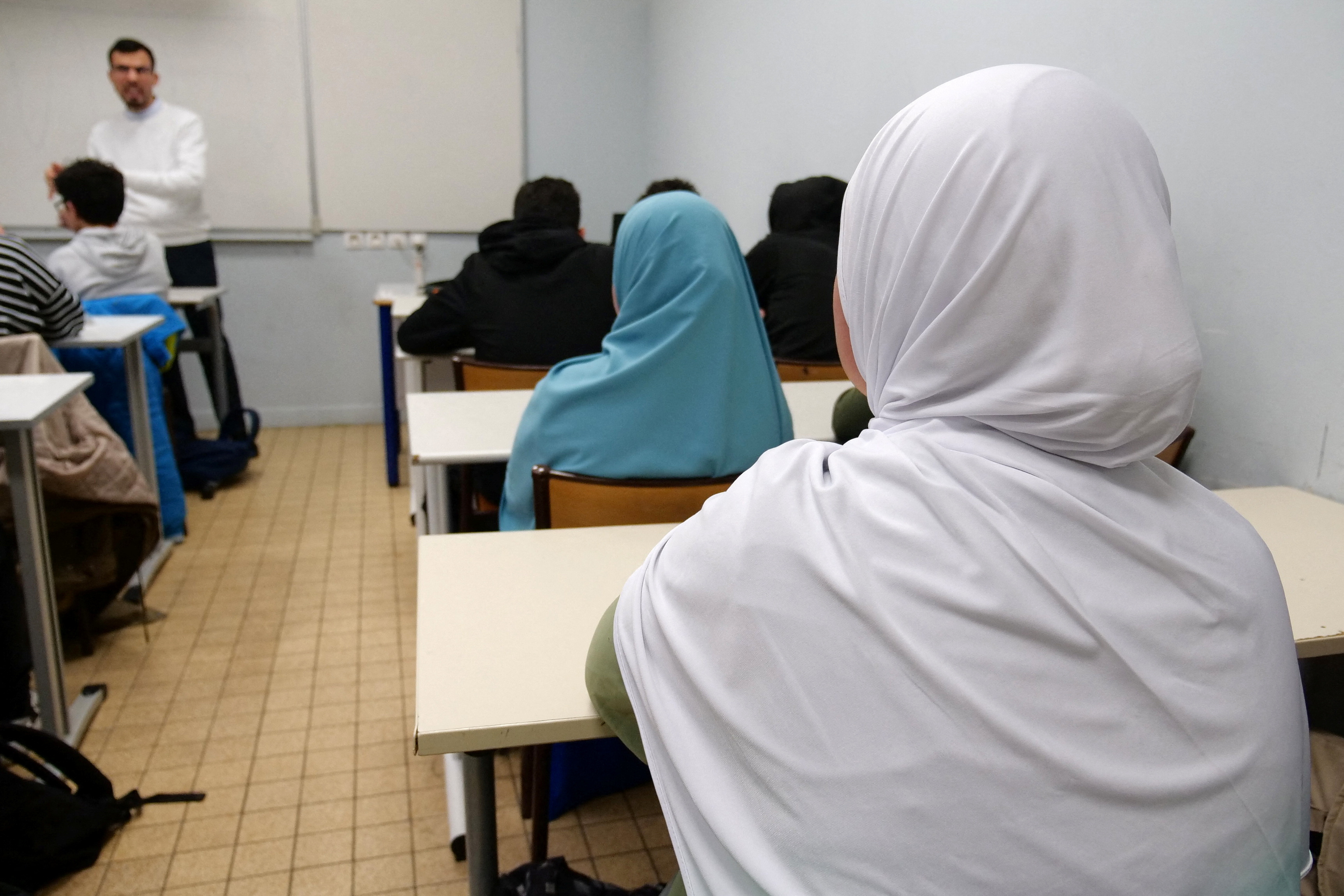Last week’s biggest news was the protest by thousands of Turkish Cypriots (around 13,000) against the re-legalisation of hijab in schools. If you live in the Republic, though, you’d be forgiven for not knowing much about it. The media reported it, of course, and political parties did respond – though the government had no official comment, beyond a late-breaking presidential remark about not getting involved in Turkish Cypriots’ “internal affairs”.
Akel put out a brief, two-paragraph message of support. Disy issued a statement condemning Turkey’s “attempt at Islamisation”, without supporting the protesters per se. Overall, though, President Christodoulides’ hollow PR tour of the US to solicit investments and promote Cyprus as a regional “hub” got more attention.

For Turkish Cypriots, the protest was the latest chapter in their ongoing existential crisis, trying to preserve their largely secular culture and avoid being squeezed out by Erdogan’s Turkey. The stakes couldn’t be higher. So why such indifference on the Greek side? Some might read it as hostility.
Then again, it could just be a realistic appraisal that – however much sympathy we may have with the Turkish Cypriots – they’ll inevitably be ruled by Turkey in any negotiation on the Cyprus problem, so nothing is gained by supporting them directly. This is cynical, but probably true. Still, there are many gestures of support our government could make – if only for the PR benefits of showing unity between the two communities.
Opening more crossing points would be one such gesture – and a powerfully symbolic one, given that only Turkish Cypriots, not settlers, are allowed to use the crossing points. Yet there’s no indication that Greek Cypriots are pushing hard in the current discussion to open more crossings. If anything – after the initial brouhaha in Geneva – it’s being presented as a tough negotiation that may or may not succeed, even though both sides have everything to gain from it.
The reason is obvious. Nothing is allowed to undermine the narrative that every negotiation with the famously ‘intransigent’ Turkish side is a struggle – which also allows our side to walk away at any point, while claiming to have done its best. The fact that it’s roundly blamed, in the north and elsewhere, for the failures of the Annan Plan and Crans Montana is neither here nor there.
Yet the rot actually goes even deeper – and in fact, Christodoulides’ trip to the US last week provides an ironic illustration. The president’s foreign policy seems to consist entirely of cosying up to powerful interests in order to gain their approval as a “hub” or a “pillar of stability”. Given his background, one may call it a civil-servant mentality (though of course not all civil servants fit the stereotype), a strategy of brown-nosing to get ahead.
It’s certainly a servile mentality. It’s bad enough that we’re expected to feel proud about being patted on the head, like a schoolchild that’s won a gold star. But this policy also militates against any idea of shared Cypriot-ness.
The implied assumption is that outside forces, which are much more powerful than Cypriots themselves – whether it’s the US, or the EU, or energy giants, or rich investors – will intervene, directly or indirectly, and solve the Cyprus problem more or less in passing, not because they care but because it serves their own interests. It’s a cynical view, basically saying that engagement with the Turkish Cypriot side is pointless since we’re both pawns in a chess game anyway. Instead, the plan is to preserve a certain antagonism for domestic consumption – to keep the so-called patriots happy – while ingratiating ourselves with the big boys.
Needless to say, this policy is short-sighted. Every country needs a shared identity. On the Greek Cypriot side, we wonder how far social problems stem from this lack of identity – which is also a lack of self-respect.
Are youths rioting in Limassol because they sense how casually Limassol is being sold to the highest bidder? Is the thoughtless destruction of the environment related to a deep-seated feeling that any idea of ‘Cyprus’ is irrelevant anyway? It’s telling that the only recent protest in the Republic that was equivalent in size to last week’s protest was the demo over the Tempi rail disaster in Greece, as if people find it easier to align with the motherland’s problems than they do with our own. On the Turkish Cypriot side, the role of the motherland is different, and more ambivalent – but things are just as fraught, and even more desperate. The controversy over the hijab remains.
School regulations have been changed, despite the protest, and big counter-protests are being planned. Meanwhile, Turkey’s sway grows ever more oppressive. The relative apathy in the Republic – both among officials and ordinary people – to what’s going on in the north may be understandable, but it’s a dangerous game.
Those who keep denying that Turkish Cypriots exist may turn around one day and find that they no longer do..
Politics

Our View: Indifference to north’s hijab fight is a dangerous game

Last week’s biggest news was the protest by thousands of Turkish Cypriots (around 13,000) against the re-legalisation of hijab in schools. If you live in the Republic, though, you’d be forgiven for not knowing much about it. The media reported it, of course, and political parties did respond – though the government had no official [...]














